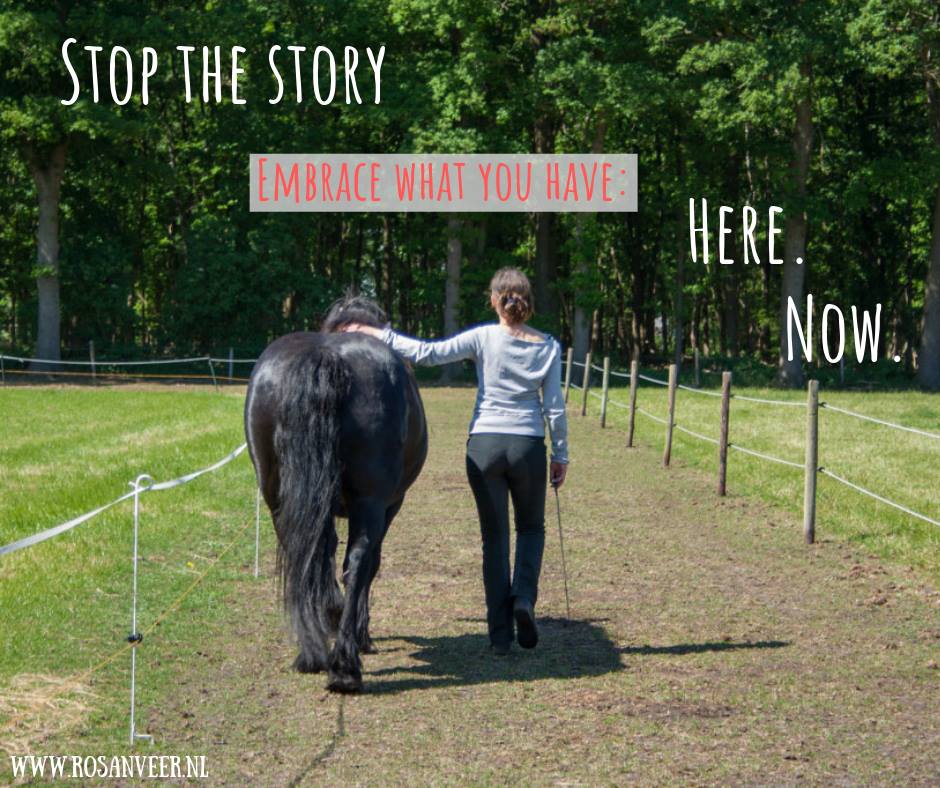We all love stories, they can entertain and inspire us.
How lovely it is to lose yourself in a good book or a beautiful movie! But stories can also get in our way. Because you see, we often have (unconsciously) a story in our mind about ourselves and about our horse.
The summary of such a story sounds about like this:
- “I do my best, but my horse simply has no aptitude/the right pedigree.”
- “As a rider, I have no talent at all. Everyone who looks at me working my horse will think I’m an idiot. “
- “I am super talented as a rider and have a lot of experience. So if an instructor tells me I’m doing something wrong, it’s not true.”
- “My horse is dominant/anxious/slow/a racer by nature. That’s why it is so difficult to work with him. I cannot help it.”
- “I have a problem horse/horse with a difficult past. I can do some things with him, but I will never get very far.”
- “I have been practicing for days/weeks/months/years and still can’t do the travers/canter change/pass this Touchstone. It is much easier for everyone else.”
- “It all goes fine, except liberty. Well, I guess I’m simply not able to do that. So it’s better for me to skip it.”
We all have these kinds of stories in our heads!
It happens more or less automatically, produced by our overzealous brain. To protect us from setbacks and nasty feelings, it makes up stories to explain and alleviate the pain. So it’s very human and understandable.
The only problem is, though these stories do make us feel better in the short term because we can stay in the comfort zone and don’t have to try new, challenging things…
… in the long term, they give us (or our horse) only more problems.
Because all those stories block us and limit us in being open to solutions, daring to look at ourselves honestly, daring to take new steps, and above all: really SEE what is present here and now.
While working with horses, it’s important we can open up to everything that is there NOW and that we are not guided by what happened yesterday, or last week, or what our beliefs and assumptions tell us. Because this all distracts us from what is present here and now. And even when what is there, isn’t nice: by truly seeing it, you stop the story. And that makes you free!
Then you can put your brain to work in a good way; not for obstructing stories, but for creative solutions.
Because when the story stops, it creates a space where suddenly much more is possible!


